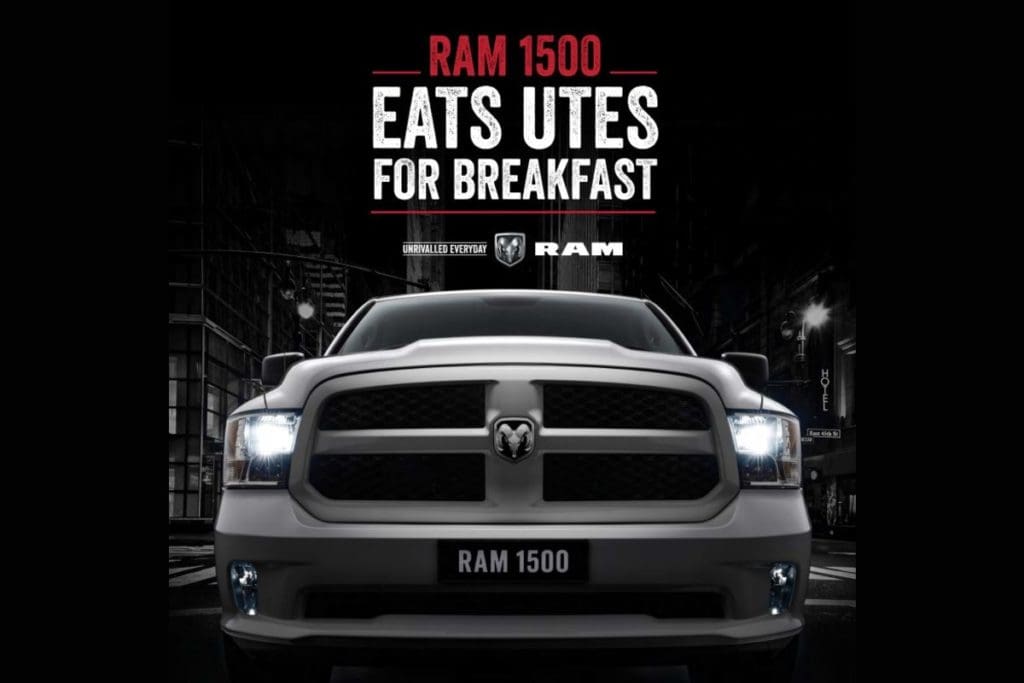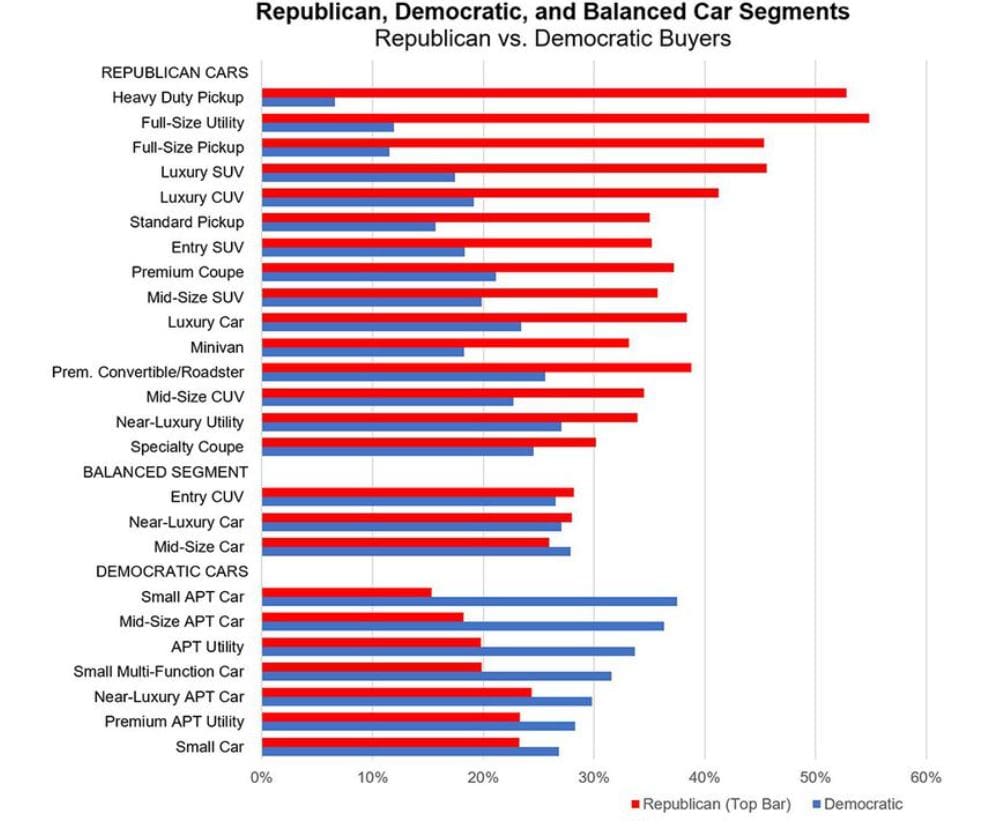The Stark Politics of Vehicle Choice Revealed

San Diego, California
In wealthy western countries, apart from avid cyclists and inner city dwellers of major cities, most residents are virtually compelled by their nation’s planning decisions and resultant built environment, to purchase and drive some sort of vehicle, at least for some of their journeys.
We’ve seen interesting studies before about personality characteristics of typical purchasers of certain types of vehicles.
But a recent major survey in the USA brings home just how political, and polarised, the choice of vehicle type has become over there. We wonder if a similar pattern would emerge if this survey were repeated in Australia.
The survey of 46,000 respondents was conducted by market research firm Strategic Vision and the results were published in Forbes.
As you can see from the attached chart, there were vast differences in vehicle purchase type based upon political affiliation.
First some explanation of abbreviations. SUV=sport utility vehicle (these are the big ones on truck chassis) CUV = crossover utility vehicle (these are usually slightly smaller / lighter, on car chassis) APT = hybrids and electric vehicles.
The single greatest Republican-Democrat disparity is the heavy duty pickup truck segment, where Republicans buy eight pickups to one for each Democratic buyer.
The political divide also splits by brands. “Audi, BMW and Volvo are Democratic, while Cadillac, Land Rover, Lexus and Lincoln are heavily Republican,” said Alexander Edwards, president of Strategic Vision.
Democrats also are less likely to be new-vehicle buyers because they skew younger and are more likely to get a used car, according to Edwards. They also are open to foregoing car ownership in favour of public transportation or ride sharing, and if they do own their own vehicles, it’s for a longer period of time, he said. “Republicans are more likely to own a vehicle for only three to six years,” Edwards said. The average car on the road is nearly 12 years old, according to industry research firm IHS Markit.
When buyers were asked what they want in a car, Democrats responded that prefer an environmentally-friendly vehicle that is both economical and cool. Republicans said they want a vehicle seen as powerful, rugged and prestigious.
| Top 10 Vehicles for Democrats | Top 10 Vehicles for Republicans |
| 1. Honda Civic Sedan | 1. Dodge Ram 2500/3500 |
| 2. Honda Accord Sedan | 2. Ford F150 |
| 3. Subaru Forester | 3. GMC Sierra 1500 |
| 4. Jeep Compass | 4. Chevrolet Silverado 1500 |
| 5. Honda HR-V | 5. Dodge Ram 1500 |
| 6. Nissan Sentra (called a Pulsar in Australia) | 6. Ford Explorer |
| 7. Nissan Altima Sedan | 7. Ford F250/350 |
| 8. Volkswagen Tiguan | 8. Toyota Tudra |
| 9. Subaru Crosstrek (called an XV in Australia) | 9. CMC Sierra 2500/3500 |
| 10. Tesla Model 3 | 10. Chevrolet Silverado 2500/3500 |

What Does This Mean for Micromobility?
As we wrote about previously here, when it comes to risk to cyclists, pedestrians, not all vehicles are created equal. Is it coincidence that the top 10 Republican vehicles are the exact style of high, heavy, restricted forward visibility vehicles that a growing body of research is showing are more dangerous to ‘vulnerable road users’? (a controversial term, we acknowledge)
Some of this article including all quotes and source data was first published on Forbes.com
